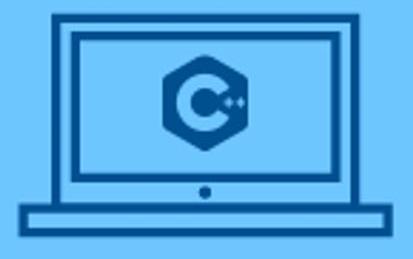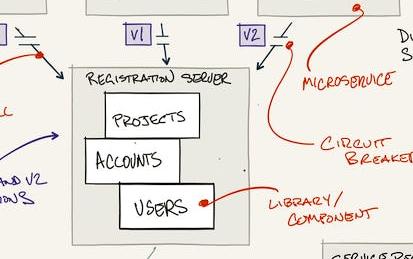

Our Courses

Unsupervised Text Classification for Marketing Analytics
Marketing data is often so big that humans cannot read or analyze a representative sample of it to understand what insights might lie within. In this course, learners use unsupervised deep learning to train algorithms to extract topics and insights from text data. Learners walk through a conceptual overview of unsupervised machine learning and dive into real-world datasets through instructor-led tutorials in Python. The course concludes with a major project. This course uses Jupyter Notebooks and the coding environment Google Colab, a browser-based Jupyter notebook environment.
-
Course by

-
 Self Paced
Self Paced
-
 13 hours
13 hours
-
 English
English

Data Mining Foundations and Practice
The Data Mining specialization is intended for data science professionals and domain experts who want to learn the fundamental concepts and core techniques for discovering patterns in large-scale data sets.
-
Course by

-
 Self Paced
Self Paced
-
 English
English

Introduction to Computer Science and Programming Using Python
An introduction to computer science as a tool to solve real-world analytical problems using Python 3.5.
-
Course by

-
 English
English

Introduction to Computer Science and Programming
The term “Computation” refers to the action performed by a computer. A computation can be a basic operation and it can also be a sophisticated computer simulation requiring a large amount of data and substantial resources. This course aims at introducing learners with no prior knowledge to the basic key concepts of computer science. By following the lectures and exercises of this course, you will gain an understanding of algorithms by programming using the language Ruby.
-
Course by

-
 English
English

Teaching Coding in Grades 5-8 with Scratch Encore
This course introduces teachers and other educators to the basics of teaching programming with Scratch to students in grades 5-8 using Scratch Encore, a culturally responsive, intermediate computer science curriculum. Each week, participants are introduced to key computer science concepts (e.g., loops, synchronization), and then apply those concepts as they complete programming assignments in Scratch. Helpful pedagogical practices and teaching strategies are introduced throughout the course.
-
Course by

-
 Self Paced
Self Paced
-
 English
English

Impact of Technology: How To Lead Classroom Discussions
Learn how to keep 14-16 year-old students engaged in discussions while teaching computer science.
-
Course by

-
 Self Paced
Self Paced
-
 12
12
-
 English
English

An Introduction to Computer Networking for Teachers
Build your knowledge and understanding of computer networks as a computer science teacher.
-
Course by

-
 Self Paced
Self Paced
-
 12
12
-
 English
English

Teaching Computational Thinking
This course is for educators who are passionate about the future of their 7-12+ year old students and want to learn more about teaching computer science in an engaging and meaningful way.
-
Course by

-
 Self Paced
Self Paced
-
 15
15
-
 English
English

Try It: Intro to Spreadsheets
Excel skills are marketable in almost every industry. Whether you work in IT, healthcare, finance, or computer science, knowing how to operate spreadsheets can help you to organize data and gain valuable insights. This free, no-risk introductory course to spreadsheets aims to equip you with the beginner’s knowledge to navigate both Excel and Google Spreadsheets so you can bring greater solutions and organization to any project.
-
Course by

-
 Self Paced
Self Paced
-
 1
1
-
 English
English

Computer Vision and Image Processing Fundamentals
Learn about computer vision, one of the most exciting fields in machine learning. artificial intelligence and computer science.
-
Course by

-
 Self Paced
Self Paced
-
 10
10
-
 English
English

Statistical Learning for Data Science
Statistical Learning is a crucial specialization for those pursuing a career in data science or seeking to enhance their expertise in the field. This program builds upon your foundational knowledge of statistics and equips you with advanced techniques for model selection, including regression, classification, trees, SVM, unsupervised learning, splines, and resampling methods. Additionally, you will gain an in-depth understanding of coefficient estimation and interpretation, which will be valuable in explaining and justifying your models to clients and companies.
-
Course by

-
 Self Paced
Self Paced
-
 English
English

C++ Basics: Selection and Iteration
Code and run your first C++ program in minutes without installing anything! This course is designed for learners with no coding experience, providing a solid foundation of not just C++, but core Computer Science topics that can be transferred to other languages. The modules in this course cover printing, operators, iteration (i.e., loops), and selection (i.e., conditionals). To allow for a truly hands-on, self-paced learning experience, this course is video-free.
-
Course by

-
 Self Paced
Self Paced
-
 9 hours
9 hours
-
 English
English

Data Science Foundations: Statistical Inference
This program is designed to provide the learner with a solid foundation in probability theory to prepare for the broader study of statistics. It will also introduce the learner to the fundamentals of statistics and statistical theory and will equip the learner with the skills required to perform fundamental statistical analysis of a data set in the R programming language. This specialization can be taken for academic credit as part of CU Boulder’s Master of Science in Data Science (MS-DS) degree offered on the Coursera platform.
-
Course by

-
 Self Paced
Self Paced
-
 English
English

My Name is Aracely
Watch the inspiring story of Aracely Casillas, a Code.org student who wants to change the world using technology. Help bring computer science to your school: http://code.org/yourschool. Join our movement and register at https://studio.code.org/users/sign_in and learn more at ttps://studio.code.org/courses
-
Course by

-
 4 min
4 min
-
 English
English

CS50's Computer Science for Business Professionals
This is CS50’s introduction to computer science for business professionals.
-
Course by

-
 Self Paced
Self Paced
-
 32
32
-
 English
English

Fundamentals of Network Communication
In this course, we trace the evolution of networks and identify the key concepts and functions that form the basis for layered architecture. We introduce examples of protocols and services that are familiar to the students, and we explain how these services are supported by networks. Further, we explain fundamental concepts in digital communication, and focus on error control techniques that include parity check, polynomial code, and Internet checksum.
-
Course by

-
 Self Paced
Self Paced
-
 15 hours
15 hours
-
 English
English

Miracles of Human Language: An Introduction to Linguistics
Everywhere, every day, everybody uses language. There is no human society, no matter how small or how isolated, which does not employ a language that is rich and diverse. This course introduces you to linguistics, featuring interviews with well-known linguists and with speakers of many different languages. Join us to explore the miracles of human language! The Miracles of Human Language introduces you to the many-faceted study of languages, which has amazed humans since the beginning of history.
-
Course by

-
 Self Paced
Self Paced
-
 23 hours
23 hours
-
 English
English

Text Marketing Analytics
Marketing data are complex and have dimensions that make analysis difficult. Large unstructured datasets are often too big to extract qualitative insights. Marketing datasets also are relational and connected. This specialization tackles advanced advertising and marketing analytics through three advanced methods aimed at solving these problems: text classification, text topic modeling, and semantic network analysis. Each key area involves a deep dive into the leading computer science methods aimed at solving these methods using Python.
-
Course by

-
 Self Paced
Self Paced
-
 English
English

Software Architecture for Big Data
This specialization is for software engineers interested in the principles of building and architecting large software systems that use big data. Through three courses you will learn about how to build and architect performant distributed systems from industry experts at Initial Capacity. This specialization can be taken for academic credit as part of CU Boulder’s MS in Data Science or MS in Computer Science degrees offered on the Coursera platform. These fully accredited graduate degrees offer targeted courses, short 8-week sessions, and pay-as-you-go tuition.
-
Course by

-
 Self Paced
Self Paced
-
 English
English
Deep Learning for Healthcare
This specialization is intended for persons involved in machine learning who are interested in medical applications, or vice versa, medical professionals who are interested in the methods modern computer science has to offer to their field. We will cover health data analysis, different types of neural networks, as well as training and application of neural networks applied on real-world medical scenarios.
-
Course by

-
 Self Paced
Self Paced
-
 English
English

IBM Data Science
Prepare for a career in the high-growth field of data science. In this program, you’ll develop the skills, tools, and portfolio to have a competitive edge in the job market as an entry-level data scientist in as little as 4 months. No prior knowledge of computer science or programming languages is required. Data science involves gathering, cleaning, organizing, and analyzing data with the goal of extracting helpful insights and predicting expected outcomes.
-
Course by

-
 Self Paced
Self Paced
-
 English
English

Statistical Modeling for Data Science Applications
Statistical modeling lies at the heart of data science. Well crafted statistical models allow data scientists to draw conclusions about the world from the limited information present in their data. In this three credit sequence, learners will add some intermediate and advanced statistical modeling techniques to their data science toolkit. In particular, learners will become proficient in the theory and application of linear regression analysis; ANOVA and experimental design; and generalized linear and additive models.
-
Course by

-
 Self Paced
Self Paced
-
 English
English

Ethics in Engineering
Explore unique case studies in engineering ethics. In this four-week course, you’ll examine different historical case studies and understand how they led to classic engineering failures. Though each case is unique and has a distinct context, they all share common themes; a backstory, a disastrous event, a post-event with ramifications, and outcomes. For each case, you’ll watch and hear video lectures and explore foundational literature. You’ll also have the opportunity to discuss the case in detail and check your knowledge through quizzes and reflections on your understanding of the case.
-
Course by

-
 Self Paced
Self Paced
-
 14 hours
14 hours
-
 English
English

Digital Signal Processing 1: Basic Concepts and Algorithms
Digital Signal Processing is the branch of engineering that, in the space of just a few decades, has enabled unprecedented levels of interpersonal communication and of on-demand entertainment. By reworking the principles of electronics, telecommunication and computer science into a unifying paradigm, DSP is a the heart of the digital revolution that brought us CDs, DVDs, MP3 players, mobile phones and countless other devices. In this series of four courses, you will learn the fundamentals of Digital Signal Processing from the ground up.
-
Course by

-
 Self Paced
Self Paced
-
 29 hours
29 hours
-
 English
English

Machine Learning: Theory and Hands-on Practice with Python
In the Machine Learning specialization, we will cover Supervised Learning, Unsupervised Learning, and the basics of Deep Learning. You will apply ML algorithms to real-world data, learn when to use which model and why, and improve the performance of your models. Starting with supervised learning, we will cover linear and logistic regression, KNN, Decision trees, ensembling methods such as Random Forest and Boosting, and kernel methods such as SVM. Then we turn our attention to unsupervised methods, including dimensionality reduction techniques (e.g., PCA), clustering, and recommender systems.
-
Course by

-
 Self Paced
Self Paced
-
 English
English



